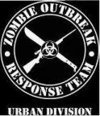Try explaining to a college student that Tet was an American military victory. You’ll provoke not a counterargument—let alone an assent—but a blank stare: Who or what was Tet? Doing interviews about the recent hit movie 300, I encountered similar bewilderment from listeners and hosts. Not only did most of them not know who the 300 were or what Thermopylae was; they seemed clueless about the Persian Wars altogether.
It’s no surprise that civilian Americans tend to lack a basic understanding of military matters. Even when I was a graduate student, 30-some years ago, military history—understood broadly as the investigation of why one side wins and another loses a war, and encompassing reflections on magisterial or foolish generalship, technological stagnation or breakthrough, and the roles of discipline, bravery, national will, and culture in determining a conflict’s outcome and its consequences—had already become unfashionable on campus. Today, universities are even less receptive to the subject.
Article here
Subscribe to:
Post Comments (Atom)


























































No comments:
Post a Comment